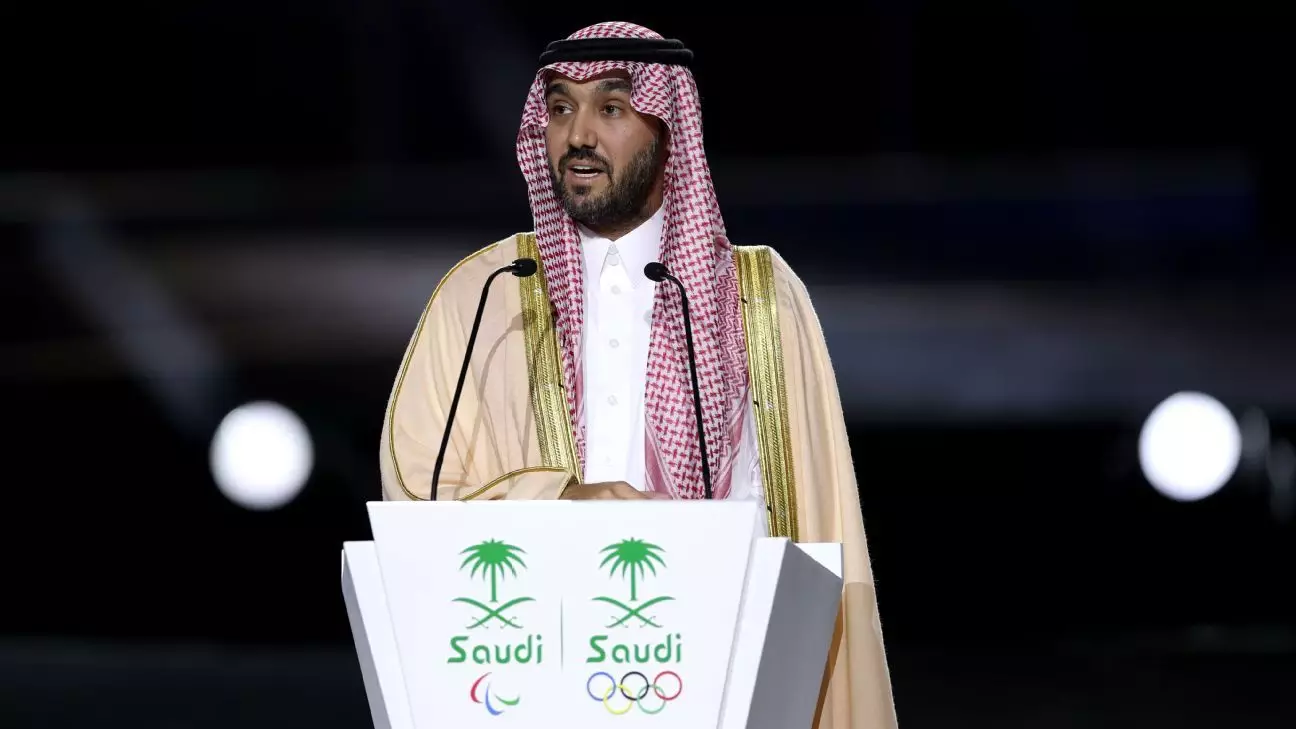As the world collectively looks toward the 2034 FIFA World Cup, the spotlight is placed firmly on Saudi Arabia—a nation grappling with human rights concerns, particularly pertaining to its treatment of migrant workers. In the wake of a tragic incident involving the death of a Pakistani worker during the construction of the Aramco Stadium, Prince Abdulaziz bin Turki Al-Faisal, the nation’s Minister of Sport, has been vocal about the importance of worker safety, asserting that investigations are underway. This incident, while shocking, is symptomatic of broader systemic issues surrounding labor practices in the kingdom.
While the minister’s statements indicate a serious intention to prioritize worker safety, one cannot help but pose critical questions about the effectiveness and sincerity of these commitments. Al-Faisal highlighted that an investigation would be conducted to ascertain the circumstances surrounding the worker’s death, and praised the effective safety record of other projects in the region like Diriyah, which boasted 20 months without similar incidents. However, these assurances feel inadequate when considered against a backdrop of ongoing human rights abuses and the notorious reputation of the labor system in Saudi Arabia.
Reflecting on Historical Context
The human rights landscape in Saudi Arabia has historically been marred by poor labor regulations and mistreatment of migrant workers. The tragic death of Muhammad Arshad links back to a wider tradition of labor exploitation that has been under scrutiny since Qatar’s preparations for the 2022 World Cup. During those preparations, the international community expressed outrage over the treatment of migrant workers—outcry that many hope has led to lessons learned as Saudi Arabia embarks on its tournament journey.
Al-Faisal’s insistence that Saudi Arabia has learned from Qatar’s past missteps offers a glimmer of hope, but it remains to be proven whether these lessons will translate into real, actionable change. The statement that FIFA’s involvement could serve as a “unique catalyst for positive social change” feels more like an illusory promise than a guaranteed reality. Evidence from historical precedents must encourage skepticism, rather than blind trust in assurances from officials.
The Role of Multi-Layers of Accountability
With FIFA’s endorsement of Saudi Arabia as the host nation, the organization has a renewed obligation to hold its partner accountable. The collaborative silence during the bidding process, coupled with an astonishing lack of transparency, raises questions about how genuinely the organization values human rights compared to commercial interests. The voices of human rights groups, labeling FIFA’s decision as “reckless,” resonate strongly. Their warning about the endangerment of migrant lives should not be brushed aside; instead, it ought to be incorporated into the planning and executing phases of World Cup preparations.
In line with this, the youth of Saudi Arabia, as well as neighboring regions, can play a vital role in challenging the status quo. Engaged citizens demanding transparency and humane treatment of workers can alter the narrative—bringing pressure to bear on Saudi authorities to improve labor conditions and public practices. Herein lies an opportunity for the Saudi government to redefine its international image while fostering more equitable labor practices domestically.
A Call for Global Solidarity
The unfolding narrative surrounding the 2034 World Cup is a critical moment not just for Saudi Arabia, but the world as a whole. As nations and organizations weigh their own relationships with the kingdom, the international community must band together to push for meaningful reform. The World Cup, a magnificent celebration of sport, can also serve as a platform to prioritize and uplift the dignity of every worker within the kingdom.
Ultimately, the path toward achieving a safe and dignified World Cup experience begins now, and may depend on the courage of both the Saudi authorities and the global community to openly address these pressing concerns. The forthcoming World Cup could harness the power of sport to become a beacon of change, rather than an event overshadowed by exploitation and suffering. Only time will tell if promises convert to action, truly empowering not just a nation, but its people, on the global stage.

